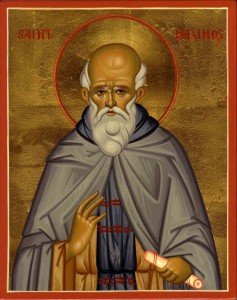In this article I have been sharing with my readers what I believe is the basic difference between Eastern Christian and Western Christian understanding of salvation. In the East, our traditional story of salvation commences not with man as sinner but with man as sharer in the life of God. It contemplates first, the goal of redemption, which is man’s participation in the divine nature. Thus, when the church Fathers asked, Why Incarnation? They answered Deification, that is man’s participation in the life of God.
Maximus the Confessor (580-662) was an heir to this Tradition. Pursuing the question of why God became man, Maximus wrote of God’s eternal purpose, the mystery according to Christ. Relying on the epistles to the Colossians and Ephesians, Maximus appealed to the mystery revealing the great counsel of God, hidden from all previous generations of our flesh – namely, the plan to confer his own nature on the human race. In the mind of Maximus there was a radical correspondence, then, between the Incarnation and deification (Theosis).
For Maximus, this plan of divine Providence was no afterthought. In creation itself, the Word’s Incarnation and man’s deification were already determined: Looking toward this very goal, God brought forth the essences of the things that exist.
For Maximus this relationship between Incarnation and deification lay at the root, not only of creation, but also of the whole of Sacred Scripture. It is revealed, he said, to those initiated into the Cross and Resurrection of the Savior. Maximus wrote in a very dense reflection:
They mystery of the Word’s embodying has the power of all enigmas and types in the Scriptures, and the understanding of creatures, whether visible or perceived with the mind. And he that knows the mystery of the Cross and the grave also knows the defining reasons of these things. But he that is initiated into the unspeakable power of the Resurrection knows the goal God established even as He brought forth all things.
Maximus’ true understanding of redemption is not based on a philosophical, prebaptismal evaluation of sin, but on the fullness of the Christian revelation, the mystery according to Christ. For Maximus, the order of things is not established apart from Christ.
The theologically adequate answer to the question “Why Incarnation?” is given to the Church, not as a point determined by apologetics but by the sacramental – mystical – initiation into the Cross and Resurrection of Christ.

